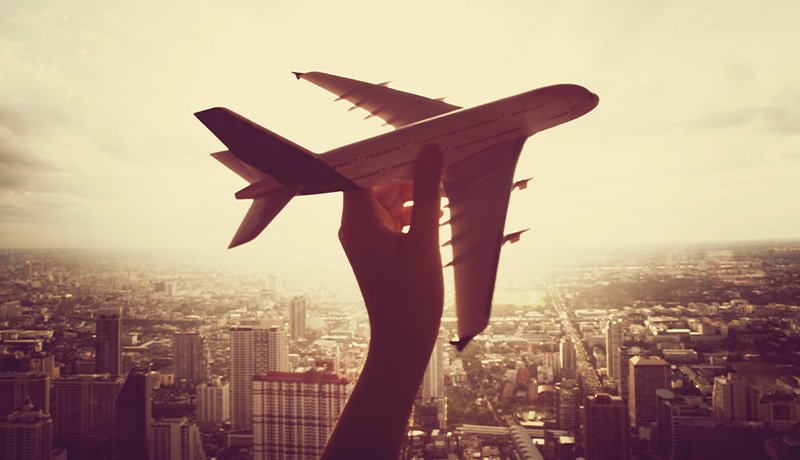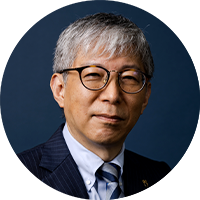Coach's VIEW is a business column authored by executive coaches in COACH A, aimed at providing valuable insights and effective approaches for leveraging coaching to foster organizational and leadership development. The column draws on the latest coaching trends and data, as well as insights from notable global publications on coaching.
What Does the Journey of Coaching Bring?

For more than a year and a half, COVID 19 has taken away the freedom of movement from people all over the world, and the number of tourists visiting Japan, which had been on the rise until 2019, has vanished from all over Japan. We have been restricted not only in our travel but also in our daily lives. What have we lost due to the lack of freedom of movement?
The Relationship between Travel and Creativity
Mozart, who died at the age of 36, is said to have spent a third of his life traveling. When his father asked him to stay in Salzburg, he lamented, "My musical talent will flourish only while I travel and come into contact with a variety of new music, but if I am confined to Salzburg, I will eventually wilt. (*1)"
Shoei Iriyama, a professor at Waseda University Graduate School, states that "Creativity is correlated with the cumulative distance traveled in life." The research by Clayton Christensen et al. who wrote "The Innovator's DNA" also points out that many innovators visit new environments, new countries and new enterprises. (*2)
It seems that there is a strong correlation between "travel" and "creativity".
Clearing the Initial Setup
Why does "travel" evoke "creativity" in humans?
There is a concept in psychology called "conceptual distance". For example, if you continuously think about one thing, your psychological distance from that idea becomes closer to you. In this case, distance means the perceived distance between you and the concept, not the physical distance. Regarding this "conceptual distance," in his book, "The Power of Diverse Thinking," Matthew Syed said that as we work on an issue, we become more and more absorbed in the details, and eventually it becomes comfortable for us to be there just like a prisoner of our unconscious framework.
It is true that we have a default setting built into us without even being conscious of it. Our conceptual distance from the people and things we interact with on a daily basis becomes closer and closer, and we build our own way of perceiving and understanding things.
However, when we are able to take a conceptual distance from an object by "moving", we come to realize its impact for the first time. Traveling removes such unconscious defaultsettings and brings "freedom of thought". Traveling also provides opportunities to experience new art and culture, and to interact with diverse people. Of course, travel is not the only way to clear our default settings, but the impact that travel has given us is much greater than we might assume.
In the book "The Power of Diverse Thinking," Matthew Syed quotes British entrepreneur Catherine Wyse as saying, "In order to see the essence of a problem, you have to look at it from a third person's point of view. If we tackle problems from a new perspective, opportunities and possibilities will become clear to us."(*3)
Travel and Coaching
We have lost our freedom of movement due to the prolonged COVID 19 pandemic. This may have given us a much greater impact than we are aware of. Our unconscious frameworks may have been reinforced without realizing it, making it difficult for us to have new perspectives. And as a result, we may be losing our creativity.
As I mentioned earlier, travel is not the only way to gain freedom of thought. However, it is also true that many opportunities that give us freedom of thought are being lost due to the restrictions of travel. In such a situation, I think that perhaps "coaching" can play a role in compensating for some of the experiences created by traveling.
As a matter of fact, in the process of interacting with my clients, I often feel as if I am going on an expedition to explore new perspectives with them. This is apparent also from my clients' feedback: "Today, I feel as if I went on an adventure to various places."
Coaches and clients face each other through dialogue. Dialogue is a form of communication in which differences are examined between them. Dialogue is a form of communication in which each person exchanges information based on the experiences, interpretations, and values that they have cultivated in their own lives, bringing to light their differences and creating new meaning, understanding, and knowledge. (*4)
By recognizing each other's ideas and differences through dialogue, we can become aware of our own unconscious fixed concepts and assumptions. By realizing that you have been unconsciously captivated by those concepts and assumptions, you will regain your freedom of thought so that you will be able to choose new concepts and ways of thinking.
This process is similar to the experience of going on a "journey" to become aware of one's unconsciously embedded "default settings" and gain a third-party perspective. You may find, as a result, an opportunity to increase your creativity. (*3, *4).
By paraphrasing Professor Shoei Iriyama, we might say that creativity is correlated with the amount of cumulative dialogue in one's life.
Obviously, coaching is not a substitute for the joys and benefits of traveling. Nevertheless, I find the value of coaching to be similar to that of travel in that it brings freedom of mind and a new perspective.
[Reference]
1 Shu Yamaguchi, Technology for Freedom: Liberal Arts, Kodansha, 2021.
2 Clayton M. Christensen, Jeff Dyer, Hal Gregersen (authors), Yuko Sakurai (translator), The Innovator's DNA, Shoei-sha, 2012.
3 Matthew Syed, Rebel Ideas: The Power of Diverse Thinking, Discover 21 Inc., 2021.
4 Tomoo Ichige, Travel and Coaching, Japan Coach Association Mail Magazine, Vol. 229, 2021.7.20
*Regardless of profit, non-profit or intranet, secondary use such as copying, diversion, selling etc. is prohibited without permission.
Language: Japanese

